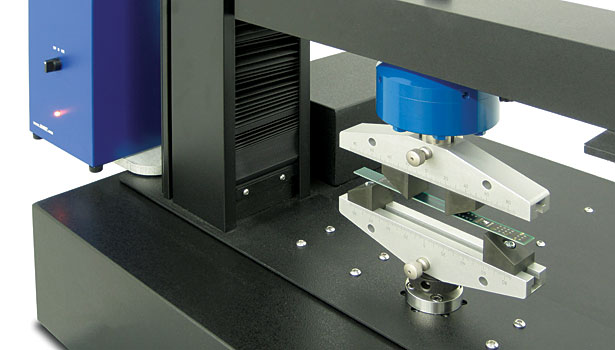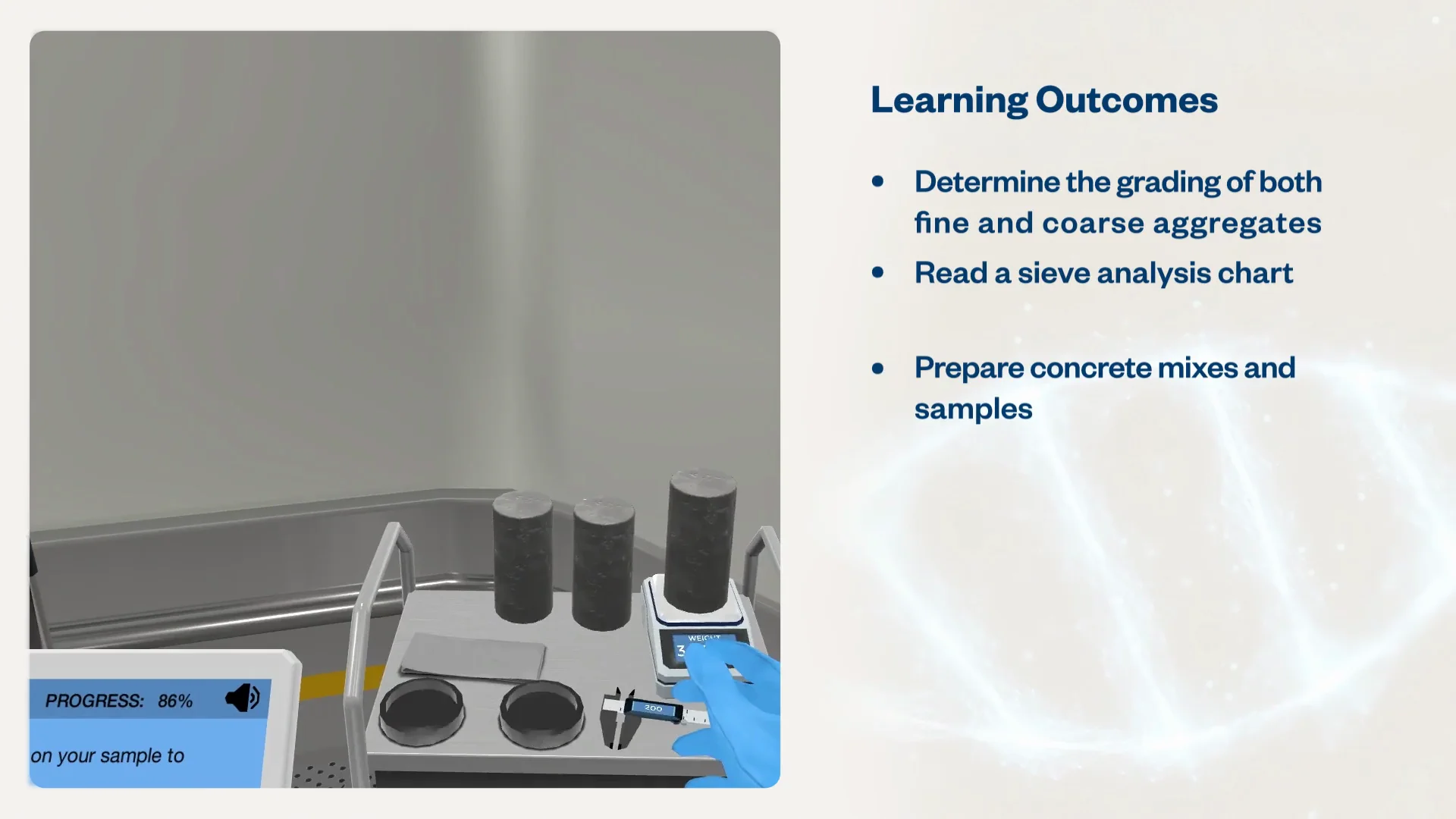Comprehensive Screening Solutions from a Leading Materials Test Lab
Wiki Article
Precision Screening of Materials for Stamina and Sturdiness
Precision screening of products for strength and longevity plays a critical function in various sectors, consisting of construction, design, and manufacturing. This process includes subjecting various products to rigorous evaluations to identify their capability to withstand outside forces and keep their honesty with time.Worldwide of materials testing, precision is paramount. Engineers and researchers depend on dependable and precise information to make educated decisions about material choice, style optimization, and product performance. By utilizing sophisticated screening techniques and state-of-the-art tools, specialists can assess the strength and toughness of a variety of materials, such as steels, polymers, porcelains, and compounds.
This intro will offer insights into the significance of precision screening, the sorts of products generally subjected to testing, the crucial parameters for stamina examination, and the methods utilized for toughness evaluation. It will certainly additionally highlight the applications and advantages of conducting accuracy screening in numerous markets.
Significance of Accuracy Screening
Accuracy testing is an important action in examining the strength and longevity of products, supplying precise and dependable information for notified decision-making. The high quality and efficiency of materials play a vital role in making certain the safety and long life of products and structures when it comes to production and building sectors. For that reason, carrying out precision testing is of utmost relevance to identify whether the materials fulfill the needed standards and requirements.By subjecting materials to rigorous testing engineers, procedures and suppliers can examine their mechanical homes, such as tensile toughness, solidity, and effect resistance. This information allows them to guarantee that the products can withstand applied forces and environmental problems without failing or deterioration gradually. Furthermore, accuracy screening aids recognize any kind of prospective flaws or weaknesses in the materials, enabling makers to make essential renovations or alterations to improve performance and reliability.
In addition, accuracy testing supplies objective and quantifiable data that can be used to make and compare different products notified choices about their suitability for particular applications. When choosing materials for essential elements or frameworks where failing could have extreme repercussions., this info is particularly beneficial.
Kinds Of Materials Subjected to Testing
Various products are subjected to screening for stamina and resilience. This screening is vital to ensure that the materials can withstand the demands of their desired applications and to identify their expected lifespan. The sorts of products subjected to screening vary and include metals, polymers, porcelains, composites, and building and construction materials.Metals, such as steel and aluminum, are frequently examined for their tensile stamina, solidity, and resistance to corrosion. materials test lab. These tests assist establish their suitability for use in architectural applications, machinery, and numerous industrial processes

Ceramic products, such as porcelain and ceramic floor tiles, are checked for their compressive strength, heat resistance, and durability. These tests make certain that porcelains can endure extreme atmospheres and my response high temperature levels, making them ideal for applications in the building and construction, electrical, and aerospace sectors.
Composites, which are products made from a mix of different parts, undergo different tests to assess their mechanical residential or commercial properties, such as impact, tightness, and strength resistance. Compound products are commonly made use of in industries such as aerospace, auto, and sports tools manufacturing.
Building products, including asphalt, concrete, and timber, undergo screening to identify their load-bearing capacity, resilience, and resistance to weathering. These tests are vital in making certain the safety and security and long life of bridges, structures, and roadways.
Secret Specifications for Toughness Assessment
One of the key criteria for toughness examination is the tensile toughness, which determines a material's capability to withstand pulling forces without warping or damaging. An additional crucial specification is the compressive stamina, which evaluates a product's resistance to crushing or being pressed together. By evaluating these vital criteria, scientists and designers can precisely assess the strength and longevity of products, allowing them to make informed decisions in various markets such as aerospace, automotive, building, and production.

Techniques for Resilience Analysis
Longevity assessment techniques are vital for reviewing the long-lasting performance and reliability of materials. These strategies are important in identifying the capability of products to withstand different ecological problems and mechanical stresses over expanded time periods. One commonly made use of strategy is increased aging, which entails subjecting products to accelerated ecological conditions such as heats, humidity, and UV radiation. This allows scientists to mimic the impacts of lasting exposure in a shorter look what i found duration, enabling them to evaluate product destruction and forecast its efficiency with time.One more method is cyclic screening, which entails subjecting products to repeated loading and unloading cycles. This assists examine the product's tiredness resistance and its capacity to withstand repeated tension without failure. By analyzing the stress-strain reaction of the material during cyclic testing, researchers can identify prospective powerlessness and assess the material's longevity.
Furthermore, non-destructive testing strategies such as ultrasonic screening and infrared thermography can be utilized to assess the interior stability and discover any defects or damage in the product. These strategies offer useful details about the material's sturdiness without creating any kind of damage to it.
Applications and Advantages of Precision Screening
Accuracy screening plays a crucial duty in evaluating the stamina and resilience of materials, allowing scientists and engineers to get reputable and accurate data for evaluating their performance. The applications of accuracy screening are considerable and can be found across different sectors, consisting of aerospace, automotive, building, and production.Among the essential benefits of precision testing is its capacity to recognize possible weak points or imperfections in products. By subjecting materials to rigorous and regulated screening, any susceptabilities or defects can be found before they cause catastrophic failings. This enables makers to make necessary renovations or changes to improve the general quality and toughness of their items.
Accuracy testing also aids in identifying the optimal style and composition of products. By evaluating different variations and setups, engineers can determine one of the most ideal products for specific applications. This leads to improved effectiveness, performance, and cost-effectiveness in different markets.
In addition, accuracy testing provides important data for the growth and improvement of materials and producing processes. materials test lab. It enables researchers to acquire a much deeper understanding of material behavior under different conditions, resulting in the growth of brand-new products with enhanced strength, resilience, and performance characteristics
Conclusion
Finally, precision testing plays a visit our website vital role in examining the toughness and sturdiness of materials. By subjecting different kinds of materials to extensive testing, crucial parameters for stamina examination can be recognized. Additionally, strategies for toughness assessment supply valuable insights into the efficiency and life expectancy of materials. This understanding makes it possible for industries to make enlightened choices and makes sure the advancement of long-lasting and reliable products.Precision screening is a necessary step in assessing the stamina and resilience of products, offering exact and trustworthy data for informed decision-making.Numerous products are subjected to screening for toughness and resilience. The kinds of products subjected to testing are diverse and include steels, polymers, ceramics, composites, and building and construction products.
By analyzing the stress-strain action of the material throughout cyclic screening, scientists can identify potential weak factors and evaluate the material's sturdiness.
In verdict, accuracy testing plays a critical role in reviewing the strength and sturdiness of products.
Report this wiki page